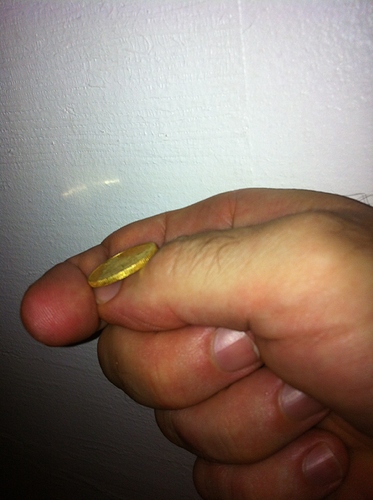[quote]Varqanir wrote:
Okay, let’s first take a look at the concept of the Messiah. Masiah is a Hebrew word meaning “one who is anointed.” King David, you will recall, had his head anointed with olive oil by the prophet Samuel, signifying that he would be the next king of Israel. He was, strictly speaking, a messiah (little m). There were lots of little m messiahs in the Hebrew Bible: kings, priests, prophets, and even the temple of Solomon were all consecrated in this fashion.
When Jews talk about The Messiah (big M), however, they are referring to the guy prophesied by Moses in the book of Deuteronomy. He said that this Messiah would come from among the people, and that God would put words in his mouth, commanding the people what to do. The Messiah, it is believed, will unite all of Israel, defeat the anti-Messiah (at least, they used to believe in the Anti-Messiah; not sure how many do anymore), and rule over the faithful in a thousand-year reign of peace.
It’s important to note two things: one, that the Jewish concept of Messiah does not include “of divine origin” or "son of God; and two, that he hasn’t shown up yet.
The Arabic equivalent of the Hebrew word masiah is masih. The same word, basically, minus one vowel sound.
In Islam, the Messiah is identified as the prophet foretold by Moses, who will unite all of Israel and instruct them in the proper worship of God, and in the proper obedience of the Law. Muslims see Jesus as having fulfilled this role, the last prophet of the Jews, whose message was ultimately rejected by his own people.
Furthermore, they believe that he was immaculately conceived, born of a virgin, was crucified, and ascended to heaven, where he will be until the day when he’ll come again, defeat the false messiah (masih ad-dajjal: we would say “Antichrist”), and once again unite all believers in the true worship of God.
I’d say this comes pretty close to the Christian concept of Messiah, minus of course that a Christian believes that Jesus is also an incarnation of God. Which, as has already been pointed out, was not universally believed by all early Christians anyway.
I hardly need mention, of course, that the word “christ” is simply the English equivalent of the Koine Greek word xristos, which is in turn the equivalent of the Hebrew word masiah.
Muslims believe that Jesus is the Christ, and that he’s coming again. Jews don’t.
So explain to me again how the “Christian and Jewish concept of Messiahship” is so much different from that of Islam.
Now, as to Moses and Muhammad.
Let’s see: both were orphans, both traced their ancestry to Abraham, both herded sheep, both received the calling to follow God relatively late in life. Both received (or claimed to receive, anyway), the inspired word of God, in a cave on a mountain, and both received a set of laws that was to lead their respective peoples away from idolotry, and toward the proper worship of God. Both had multiple wives, and sons who didn’t amount to much. Both led their followers in a frenzy of conquest, converting or slaughtering all who stood in their way.
Superficial, perhaps, but those are the similarities I can think of right off the bat. But please. Show me how Moses had more in common with Jesus.
Oh, and Tiribulus, I would challenge you to go back and read the Old Testament and the Quran, carefully and without bias, and then talk to me again about how God is “petulant” and “tantrum-throwing” in one scripture but not in the other.
[/quote]
- A prophet from among you, from your brothers, like me, the Lord, your God will set up for you you shall hearken to him. ×?×?. × Ö¸×?Ö´×?×? ×?ִקִּרְ×?Ö°Ö¼×?Ö¸ ×?Öµ×?Ö·×?Ö¶×?×?Ö¸ ×?Ö¸Ö¼×?Ö¹× Ö´×? ×?ָקִ×?×? ×?Ö°×?Ö¸ ×?Ö°×?Ö¹×?Ö¸×? ×?Ö±×?Ö¹×?Ö¶×?×?Ö¸ ×?Öµ×?Ö¸×?×? תִּשְ×?×?ָע×?Ö¼×?:
KK is correct in the sense of context in Deut 18
But nowhere does messiah the word, or its equivalent appear. The word is prophet, unmistakably.
The new prophet would be like Moses only in the sense herein stated, and repeated a few verses later: “from among you, from your brothers”… A kinsman and not some mysterious foreigner.
And not necessarily a messiah. If the Deuteronomist had wanted to use that word, he/she would have done so…twice.
